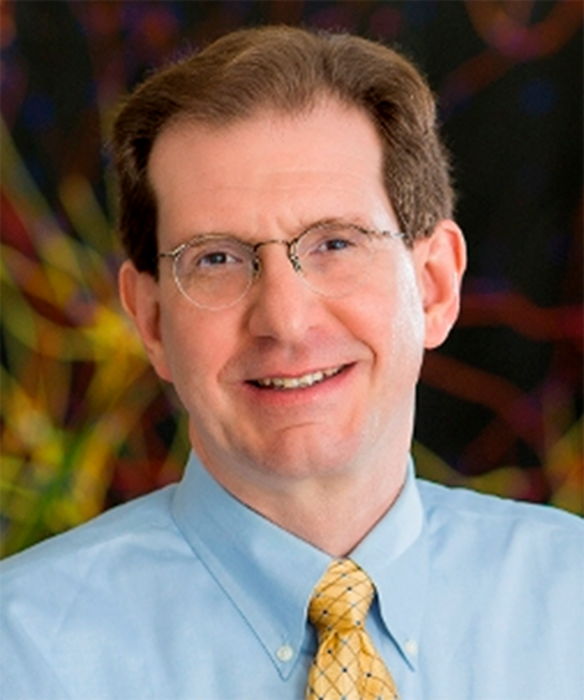Irvine, Calif., July 6, 2022 — Along with the central nervous system, the immune system may play a fundamental role in Amyotrophic Lateral Sclerosis (ALS), suggesting that bone marrow transplants may be an effective novel treatment for the neurodegenerative disease, according to findings from a research team that included Albert LaSpada, MD, PhD, distinguished professor of pathology, neurology and biological chemistry at the University of California, Irvine School of Medicine.

Credit: UCI School of Medicine
Irvine, Calif., July 6, 2022 — Along with the central nervous system, the immune system may play a fundamental role in Amyotrophic Lateral Sclerosis (ALS), suggesting that bone marrow transplants may be an effective novel treatment for the neurodegenerative disease, according to findings from a research team that included Albert LaSpada, MD, PhD, distinguished professor of pathology, neurology and biological chemistry at the University of California, Irvine School of Medicine.
The study, “Clonally expanded CD8 T cells characterize amyotrophic lateral sclerosis-4,” recently published in Nature, was a joint collaboration between LaSpada and Mount Sinai microbiology faculty members Laura Campisi, PhD, and Ivan Marazzi, PhD. The team found both immune and nervous system dysfunctions in animal models and patients with ALS4, a juvenile and slowly progressive form of the condition caused by mutations in the senataxin protein coding gene.
“This is the first study to implicate altered cell-mediated immune system function in ALS and raises the prospect of abnormal cell mediated immunity as a contributing factor in not only ALS4, but also in other forms of the disease, including sporadic ALS, which accounts for 90 percent of all cases,” said LaSpada, a corresponding author on the study.
ALS is characterized by the progressive death of motor neurons, which severely impairs the patients’ ability to move their arms and legs, speak, swallow and eventually, breathe. There is no treatment or cure, and previous research has focused on neurons. More recent studies, however, have shown evidence of interaction between the central nervous and immune systems.
The team’s most important discovery was that cell-mediated immunity, which does not involve antibodies, is altered in ALS4, based on the presence of expanded CD8 T-cells. These cells contribute to motor neuron degeneration in ALS4, validated by further research showing that replacement of bone marrow in ALS4 mice with normal control mice bone marrow was an effective treatment.
“The therapeutic benefit conferred by bone marrow transplantation in ALS4 mice can now be considered as a treatment for human patients. Furthermore, although ALS4 is a rare familial inherited form of ALS, it shares the same cardinal histopathological findings observed in sporadic ALS and most other familial forms. Hence, if future research implicates an aberrant CD8 T-cell response in sporadic ALS, then bone marrow transplantation could be a novel treatment approach for many ALS patients in the future,” LaSpada said.
Considering the potential therapeutic opportunities suggested by this work, LaSpada recommends the next steps should be to re-evaluate cell-mediated immunity in sporadic ALS patients to determine if altered T-cell function is a feature of their disease process.
This work was supported by the National Institutes of Health; Burroughs Wellcome Fund; and the Chan Zuckerberg Initiative Neurodegeneration Challenge Network.
About the UCI School of Medicine: Each year, the UCI School of Medicine educates more than 400 medical students, and nearly 150 doctoral and master’s students. More than 700 residents and fellows are trained at UCI Medical Center and affiliated institutions. The School of Medicine offers an MD; a dual MD/PhD medical scientist training program; and PhDs and master’s degrees in anatomy and neurobiology, biomedical sciences, genetic counseling, epidemiology, environmental health sciences, pathology, pharmacology, physiology and biophysics, and translational sciences. Medical students also may pursue an MD/MBA, an MD/master’s in public health, or an MD/master’s degree through one of three mission-based programs: the Health Education to Advance Leaders in Integrative Medicine (HEAL-IM), the Leadership Education to Advance Diversity-African, Black and Caribbean (LEAD-ABC), and the Program in Medical Education for the Latino Community (PRIME-LC). The UCI School of Medicine is accredited by the Liaison Committee on Medical Accreditation and ranks among the top 50 nationwide for research. For more information, visit som.uci.edu.
Journal
Nature
DOI
10.1038/s41586-022-04844-5
Article Title
Clonally expanded CD8 T cells characterize amyotrophic lateral sclerosis-4
Article Publication Date
22-Jul-2022
COI Statement
C.L. is the scientific director of the company NEMO Lab, and he served on a scientific advisory board for Mitsubishi Tanabe Pharma Europe, Cytokinetics, Neuraltus and Italfarmaco. The other authors declare no competing interests.




